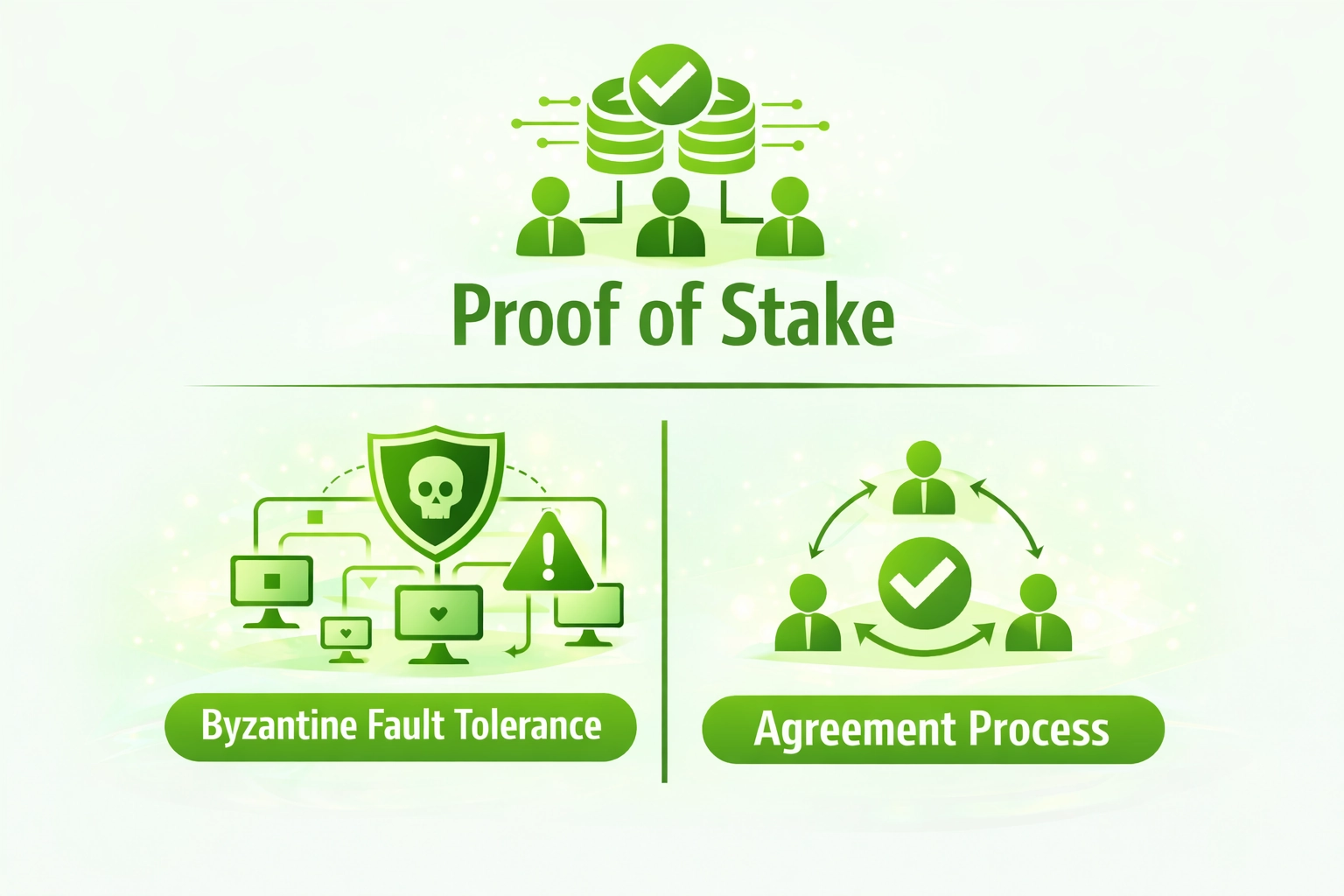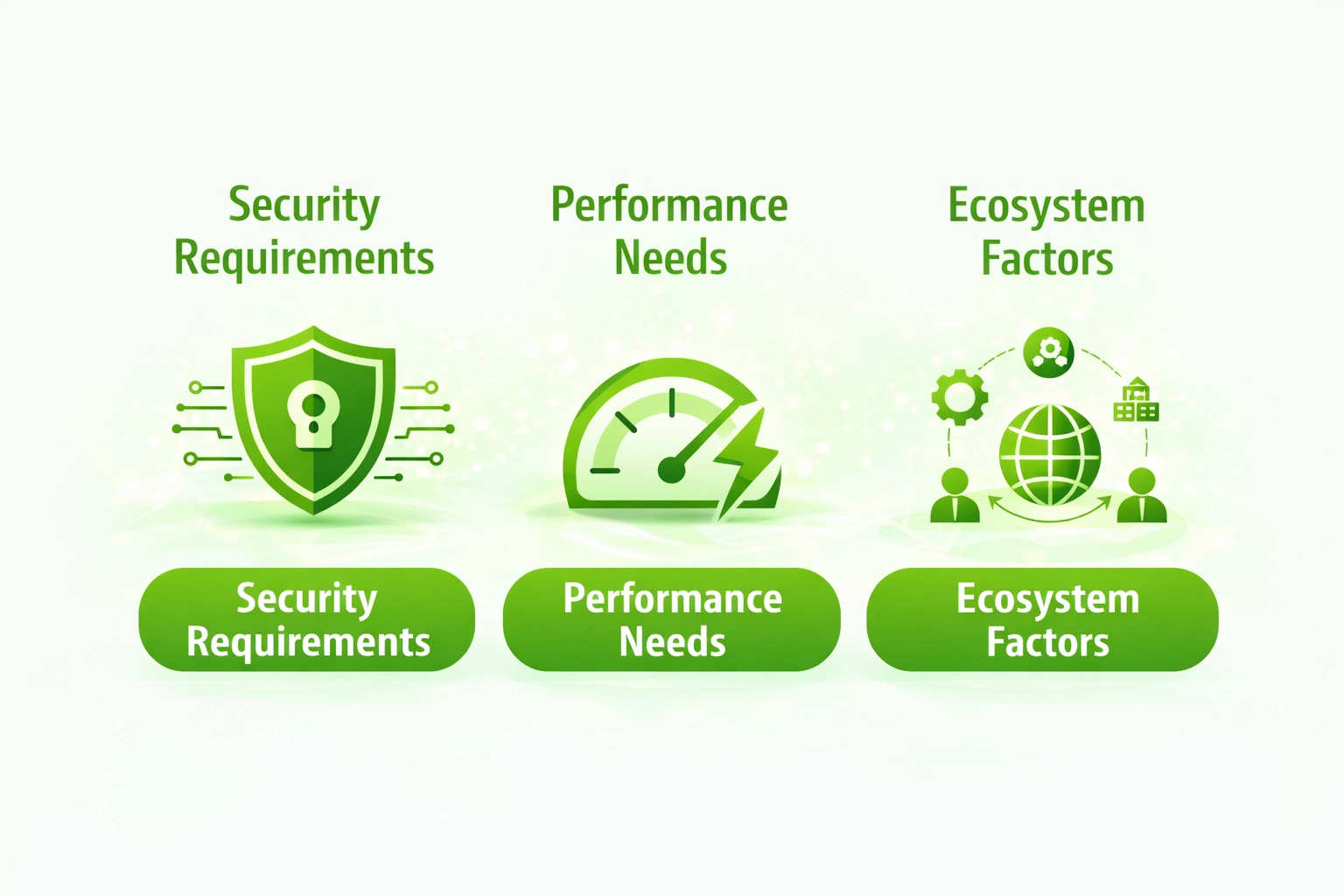Key Takeaways
- Smart contract in blockchain executes automatically when predefined conditions are met, eliminating intermediaries across USA, UK, UAE, and Canadian markets.
- Cryptographic hashing ensures every smart contract in blockchain maintains integrity, with any code modification producing completely different hash values.
- Consensus mechanisms require network-wide agreement before any smart contract in blockchain execution results become permanently recorded on the ledger.
- Digital signatures authenticate all smart contract in blockchain transactions, preventing unauthorized access and ensuring non-repudiation for every operation.
- Gas mechanisms control smart contract in blockchain execution by requiring computational resource payment, preventing infinite loops and network abuse.
- Every node independently executes smart contract in blockchain code, ensuring identical results through deterministic processing and state replication.
- Blockchain immutability protects executed smart contract in blockchain results, making successful transactions permanent and tamper-proof for audit compliance.
- Runtime security checks validate all operations during smart contract in blockchain execution, including access controls, overflow protection, and reentrancy guards.
How Smart Contracts Are Triggered on the Blockchain
Understanding how a smart contract in blockchain gets triggered is fundamental to grasping secure execution. With over eight years of experience building blockchain solutions across USA, UK, UAE, and Canadian markets, our agency has observed that triggers occur through external transactions or internal contract calls. When users submit transactions targeting contract addresses, they specify which function to execute along with required parameters. The transaction enters the mempool, where validators select it for block inclusion. Internal triggers happen when one smart contract in blockchain calls another, creating composable systems. Event-driven triggers can also activate contracts based on specific on-chain conditions being met.
Step-by-Step Process of Smart Contract Execution
The execution process for a smart contract in blockchain follows a precise sequence ensuring security and consistency. First, a user creates and signs a transaction specifying the target contract address and function call. The transaction broadcasts to network nodes, entering the mempool for validation. Validators verify the signature, check sender balance, and confirm gas availability. Upon block inclusion, every node loads the contract bytecode and initializes the execution environment. The virtual machine processes each opcode sequentially, updating state variables as specified. Finally, state changes commit to the blockchain, and the transaction receipt records execution results.

Role of Consensus in Secure Smart Contract Execution
Proof of Stake
- Validators stake tokens
- Economic security model
- Slashing for misconduct
- Energy efficient operation
Byzantine Fault Tolerance
- Handles malicious nodes
- Two-thirds agreement
- Fast finality achieved
- Enterprise preferred
Agreement Process
- Proposal broadcast
- Voting rounds
- Commit phase
- State finalization
How Smart Contracts Execute Identically Across All Nodes
| Determinism Factor | Implementation | Purpose |
|---|---|---|
| Fixed Opcode Behavior | EVM specification | Identical instruction results |
| No Random Functions | Prohibited natively | Predictable outcomes |
| Block Data Access | Synchronized values | Same environmental context |
| State Merkle Tree | Cryptographic proof | Verifiable state consistency |
| Transaction Ordering | Block sequencing | Identical execution order |
Why Smart Contract Execution Is Trustless and Automated
A smart contract in blockchain operates trustlessly because no single entity controls execution outcomes. Code determines results, not human discretion. Enterprises across USA, UK, UAE, and Canada leverage this automation to eliminate intermediary delays and reduce operational costs. Once deployed, the smart contract in blockchain executes exactly as programmed whenever conditions are met, providing predictable, reliable operations without requiring trust in any particular party.
Real-World Example: Uniswap processes $1B+ daily in automated token swaps without human intervention using smart contract in blockchain technology.
How Cryptographic Hashing Secures Smart Contract Logic
| Hash Function | Application | Security Benefit |
|---|---|---|
| Keccak-256 | Address derivation, storage | Collision resistance |
| SHA-256 | Block headers | Chain integrity |
| Merkle Trees | State verification | Efficient proofs |
| Contract Code Hash | Bytecode verification | Tamper detection |
How Digital Signatures Authenticate Smart Contract Transactions
Every smart contract in blockchain transaction requires digital signature authentication using elliptic curve cryptography (ECDSA or EdDSA). Users sign transaction data with their private keys, creating unique signatures that nodes verify using corresponding public keys. This ensures only authorized parties can initiate contract interactions, preventing unauthorized function calls and establishing clear transaction attribution for audit purposes.
Ethereum Curve
Solana/Polkadot
Aggregated Sigs
Execution Flow: From Transaction Submission to Final State Change
Transaction Creation
User constructs transaction with target address, function selector, parameters, and gas settings.
Signature Generation
Private key signs transaction hash, creating cryptographic proof of authorization.
Network Broadcast
Signed transaction broadcasts to network nodes, entering mempool for validation.
Block Inclusion
Validator selects transaction for block, ordering with other pending transactions.
EVM Execution
Virtual machine loads bytecode, processes opcodes, and updates state variables.
State Transition
Successful execution commits state changes to the global state trie.
Receipt Generation
Transaction receipt created with status, gas used, and emitted event logs.
Finalization
Consensus confirms block, making execution results permanent and irreversible.
Deploy Secure Smart Contract in Blockchain Solutions
Our blockchain experts design and implement secure smart contract in blockchain systems for enterprises. Get professional guidance for trustless automation today.
How Gas Mechanisms Control and Secure Smart Contract Execution
Gas mechanisms are fundamental to secure smart contract in blockchain execution. Each operation consumes a predefined gas amount, and users specify maximum gas limits for transactions. This prevents infinite loops from halting the network and ensures computational resources remain available. When gas exhausts before completion, execution reverts, protecting network stability while charging users for consumed resources.
How Smart Contracts Prevent Unauthorized Function Calls
Owner Patterns
- onlyOwner modifier
- Ownership transfer
- Two-step ownership
- Renounce capability
Role-Based Access
- Multiple roles defined
- Granular permissions
- Admin hierarchy
- Role revocation
Multi-Signature
- Threshold approvals
- Time-locked execution
- Proposal system
- Emergency override
How Blockchain Immutability Protects Executed Smart Contracts
Once a smart contract in blockchain executes successfully, results become permanently recorded through blockchain immutability. Each block contains cryptographic links to previous blocks, making historical modification computationally infeasible. This immutability ensures executed transactions cannot be altered retroactively, providing enterprises across USA, UK, UAE, and Canada with reliable audit trails and regulatory compliance documentation for all contract interactions.
How Smart Contracts Handle External Data During Execution
| Oracle Type | Data Source | Security Model |
|---|---|---|
| Chainlink | Decentralized feeds | Multi-node aggregation |
| Band Protocol | Cross-chain data | Delegated proof of stake |
| Pyth Network | Financial markets | Publisher attestation |
| API3 | First-party oracles | Direct provider feeds |
Runtime Security Checks Performed During Smart Contract Execution
The virtual machine performs multiple runtime security checks during smart contract in blockchain execution. Stack depth limits prevent call stack overflow attacks. Integer overflow protection in Solidity 0.8+ reverts unsafe arithmetic operations. Reentrancy guards using checks-effects-interactions pattern prevent callback exploits. Gas metering ensures resource consumption stays within defined limits, terminating execution gracefully when thresholds exceed.

Smart Contract Platform Selection Criteria
Security Requirements
- Consensus mechanism strength
- Historical security record
- Audit tool availability
- Bug bounty programs
Performance Needs
- Transaction throughput
- Finality time
- Gas cost economics
- Scalability roadmap
Ecosystem Factors
- Developer tooling
- Community support
- Integration options
- Long-term viability
How Finality Guarantees Secure and Irreversible Execution
| Blockchain | Finality Type | Time to Finality |
|---|---|---|
| Ethereum | Probabilistic then Absolute | ~15 minutes |
| Solana | Optimistic | ~12 seconds |
| Avalanche | Absolute | ~2 seconds |
| Polygon | Checkpoint-based | ~30 minutes (L1) |
Industry Standards for Secure Smart Contract Execution
Standard 1: All smart contract in blockchain code must undergo professional security audits before mainnet deployment.
Standard 2: Implement comprehensive access control using established patterns like OpenZeppelin’s AccessControl.
Standard 3: Use reentrancy guards on all functions that modify state and make external calls.
Standard 4: Validate all oracle data freshness and implement circuit breakers for price deviations.
Standard 5: Implement timelocks on critical administrative functions to allow community review.
Standard 6: Maintain comprehensive test coverage exceeding 95% with specific edge case and attack scenarios.
Understanding how smart contract in blockchain operates and executes securely is essential for enterprises implementing blockchain solutions. The combination of cryptographic security, consensus mechanisms, deterministic execution, and immutable storage creates a trustless environment where code executes exactly as written without human intervention or manipulation possibilities.
With eight years of experience building smart contract in blockchain solutions for clients across USA, UK, UAE, and Canada, our agency has witnessed these security mechanisms protect billions in digital assets. By following established security patterns, conducting thorough audits, and leveraging proven blockchain infrastructure, organizations can confidently deploy automated business logic that operates securely around the clock.
Build Secure Smart Contracts with Expert Guidance
Partner with our experienced team to implement secure, efficient smart contract in blockchain solutions for your enterprise applications.
Frequently Asked Questions
A smart contract in blockchain executes automatically when predefined conditions are met through code verification. The blockchain network validates trigger conditions, and if satisfied, the contract logic runs deterministically across all nodes without requiring manual approval or intermediary involvement.
A smart contract in blockchain is triggered by external transactions, time-based conditions, or events from other contracts. When users send transactions calling specific functions, the network validates the request and initiates execution if all required parameters and conditions are properly satisfied.
Blockchain ensures smart contract in blockchain execution security through cryptographic hashing, digital signatures, consensus mechanisms, and immutable storage. Every transaction is verified by multiple nodes, preventing unauthorized modifications and ensuring identical execution results across the entire distributed network.
Gas measures computational resources required for smart contract in blockchain execution on networks like Ethereum. Users pay gas fees to incentivize validators, prevent infinite loops, and ensure fair resource allocation. Insufficient gas causes transactions to fail while protecting network resources
Traditional smart contract in blockchain deployments are immutable once deployed, preventing modifications. However, upgradeable contract patterns using proxy architectures allow logic updates while preserving state. This flexibility requires careful governance controls to prevent unauthorized changes by malicious actors.
Validators verify smart contract in blockchain conditions by checking transaction signatures, account balances, function parameters, and access permissions. The execution environment evaluates all require statements and modifiers, reverting transactions that fail any validation check before state changes occur.
When a smart contract in blockchain encounters errors, the transaction reverts, undoing all state changes. Gas consumed up to the failure point is still charged. Error handling through require, assert, and revert statements provides informative failure messages for debugging.
Reviewed & Edited By

Aman Vaths
Founder of Nadcab Labs
Aman Vaths is the Founder & CTO of Nadcab Labs, a global digital engineering company delivering enterprise-grade solutions across AI, Web3, Blockchain, Big Data, Cloud, Cybersecurity, and Modern Application Development. With deep technical leadership and product innovation experience, Aman has positioned Nadcab Labs as one of the most advanced engineering companies driving the next era of intelligent, secure, and scalable software systems. Under his leadership, Nadcab Labs has built 2,000+ global projects across sectors including fintech, banking, healthcare, real estate, logistics, gaming, manufacturing, and next-generation DePIN networks. Aman’s strength lies in architecting high-performance systems, end-to-end platform engineering, and designing enterprise solutions that operate at global scale.







